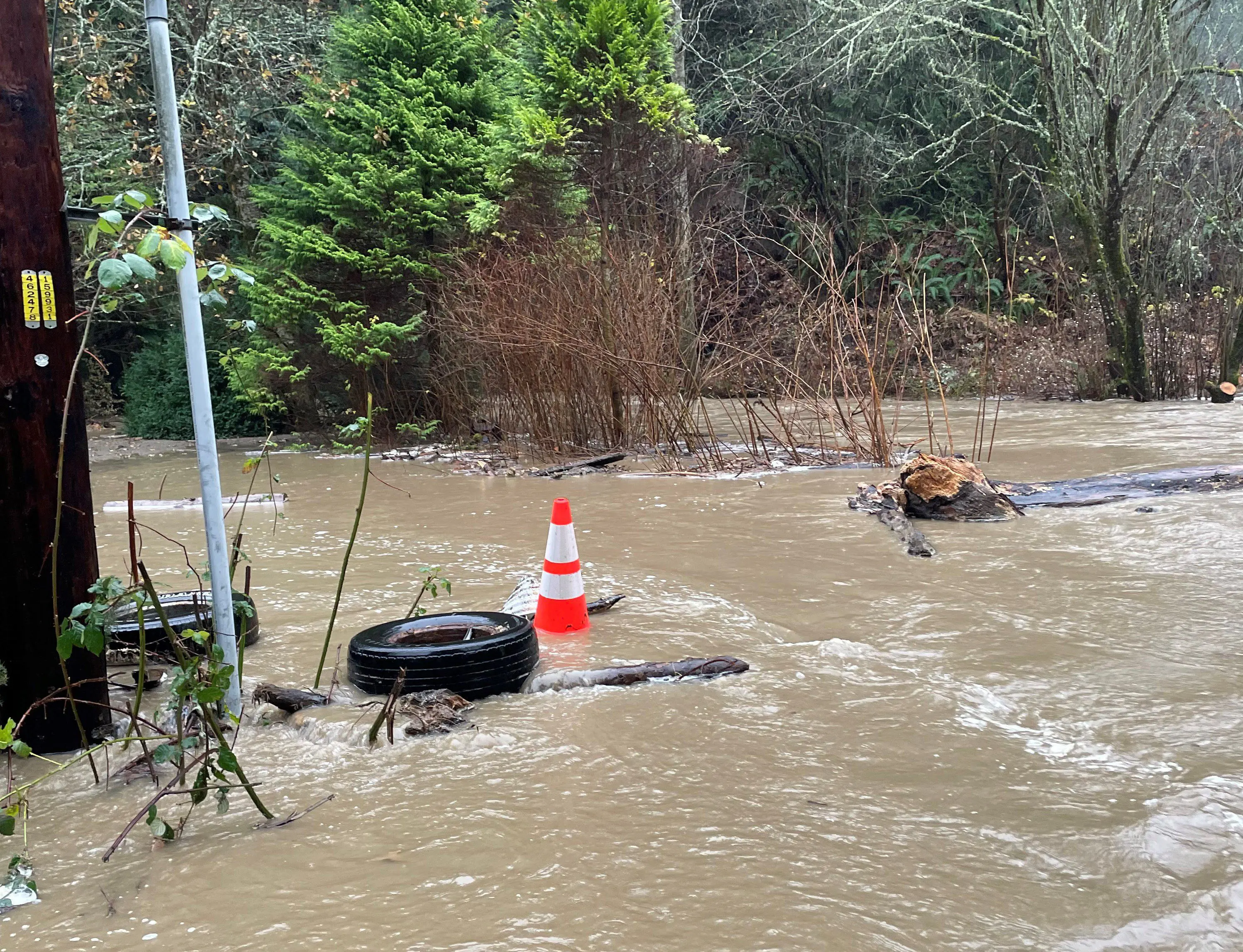Continued rainfall and saturated soils caused local flooding and other hazards throughout the day. City crews are monitoring and responding to conditions, and anticipate more rain overnight and into Monday, November 29, 2021.
Several streets were closed today (Sunday, November 28, 2021) due to flooding and water over the roadway, including Iowa Street at I-5 and Squalicum Parkway. These and other streets are expected to remain closed overnight. Street closures are updated regularly on the City’s Road Closure Information page.
Community members are urged to avoid floodwater, obey street closure signs, and follow other safety tips listed at the end of this message. In addition to flooding hazards, the threat of landslides and falling trees is greatly elevated due to rain-saturated soils.
The Post Point wastewater treatment plant and major pump stations were running at full capacity through the day. Flows exceeding pumping capacity in downtown resulted in automatic overflow at the C Street overflow for approximately 7.5 hours, resulting in nine million gallons of sewage discharging to Bellingham Bay. During the same time, an estimated 133 million gallons of water discharged from Whatcom Creek. The impacts to water quality as the result of the need for sewage overflow are expected to be minimal.
For more information
- Call 911 for weather or road related emergencies.
- To report flooding, downed trees or other road related issued on Bellingham streets, please use SeeClickFix or phone (360) 778-7700.
- For road closures, see the Road Closure Information page of the City website.
- Visit City news releases and City social media sites for up-to-date information.
- For flooding resources for Whatcom County and small cities, visit www.whatcomcounty.us/flood
- Updates about I-5 from Bellingham to Blaine and across the state available on the Washington State Department of Transportation travel center map.
Safety tips
- Avoid unnecessary trips during inclement weather.
- Obey street closure signs and do not drive around barricades.
- Avoid contact with floodwater and standing water, which may be contaminated.
- Do not enter streets or intersections if you see water over the road, even if the street is not signed or barricaded.
- Stay away from wooded areas, such as parks and trails, especially during high winds.
- Stay away from flooded creeks, as the water is rushing swiftly and currents are extremely strong. Also avoid trail bridges crossing creeks or streams during flood conditions, as they could be undermined by floodwater.

